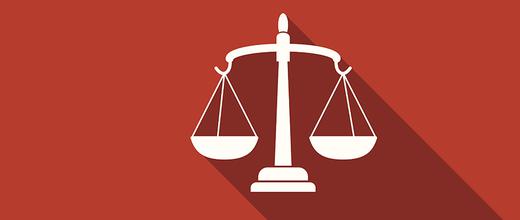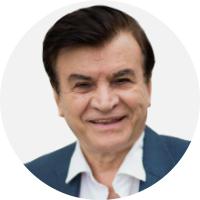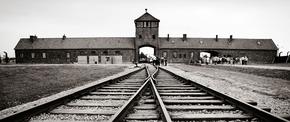The views expressed in our content reflect individual perspectives and do not represent the authoritative views of the Baha'i Faith.
Recently Texas A&M University announced that it had appointed the Baha’i attorney, professor and legal scholar (and my son) Robert B. Ahdieh as dean of its School of Law.
Known as an advocate of justice for all, Bobby Ahdieh holds a Bachelor of Arts from Princeton University’s Woodrow Wilson School of Public and International Affairs, and a Juris Doctor from Yale Law School. He served as law clerk to Judge James R. Browning of the U.S. Court of Appeals for the Ninth Circuit before his selection for the Attorney General’s Honors Program of the Civil Division of the U.S. Department of Justice.
Bobby, who is currently the K.H. Gyr Professor of Private International Law and Director of the Center on Federalism and Intersystemic Governance at Emory University School of Law in Atlanta, Georgia, comes from a multi-generational Baha’i family that traces its lineage back to the earliest days of the Baha’i Faith. In fact, my great grandfather and Bobby’s great-great-grandfather, Mulla Abdu’l-Husayn, came from the small Iranian village of Nayriz, and, even as a judge, faced severe persecution in his own pursuit of justice. Let me tell you the story.
In 1850, Mulla Abdu’l-Husayn and his family accepted the teachings of the Bab, the revolutionary prophet who inaugurated the Babi Faith and heralded the revelation of Baha’u’llah, the founder of the Baha’i Faith.
Mulla Abdu’l-Husayn and his family members believed that the teachings of this new messenger of God were the answer to their prayers, and that those teachings had the power to bring about justice, unity and peace:
Assuredly we are today living in the Days of God. These are the glorious days on the like of which the sun hath never risen in the past. These are the days which the people in bygone times eagerly expected. What hath then befallen you that ye are fast asleep? These are the days wherein God hath caused the Day-Star of Truth to shine resplendent. What hath then caused you to keep your silence? These are the appointed days which ye have been yearningly awaiting in the past—the days of the advent of divine justice. – The Bab, Selections from the Writings of the Bab, p. 161.
Abdu’l-Husayn’s family faced severe persecution from the Muslim clergy for their allegiance to the Bab and his teachings. Many of them were tortured and put to death when they refused to recant their beliefs. I believe their suffering directly relates to Bobby’s appointment 165 years later in America.
In 1853, in the second upheaval of Nayriz, a large number of Babis were attacked in the southern mountains of the town. Many were killed, and the Babis were finally defeated by over 10,000 Persian soldiers who surrounded the mountain. Nearly 700 women, children, and elderly men were taken hostage and, in a humiliating manner, were made to march through the villages and streets and finally were presented to the chief officer of the army as a prize and sign of victory.
After several horrific attacks and killings, witnessed by women and children, the soldiers brought Mulla Abdul-Husayn, who was then in his 80s and had had a distinguished career as a well-respected judge, face to face with the chief officer. The officer said: “You are a sage. Why, with all your knowledge and wisdom, and after a life of hard work ,have you accepted this new Faith and consented that your sons be killed and your wife captured?”
Mulla Abdul-Husayn replied: “I do not have the strength to answer. The only thing I can tell you is that all the divine laws of the past have been abrogated and new laws for today have been established. All religions are one and God sends new revelations to answer the needs of humanity.”
His bold statement angered the chief officer. He ordered that a handful of dirt be put into his mouth to humiliate and silence him and his voice—the voice of truth and justice.
After that interrogation in Shiraz, Mulla Abdu’l Husayn was martyred as he and a score of other Babis were being taken on foot from Shiraz to Tihran by the order of the Shah. In the village of Seadat-u-Abad, close to the city of Abadeh, the elderly Mulla Abdu’l-Husayn became very ill and could not continue the journey. Consequently, the soldiers decapitated him, buried his body, and then carried his head aloft on a spear while they marched, as they did with those of the other beheaded Babi martyrs. Eventually they buried the decomposing heads, in a known location, after reaching Abadeh.
Little did those soldiers know that the flame of truth is indomitable and cannot be extinguished. On that day, in 1853, they may have silenced Mulla Abdul-Husayn, but they had absolutely no idea that the reality of justice and the voice of truth would broadly echo far, far beyond the village of Nayriz to every corner of the world, including Texas.

















Comments
Sign in or create an account
Continue with Facebookor